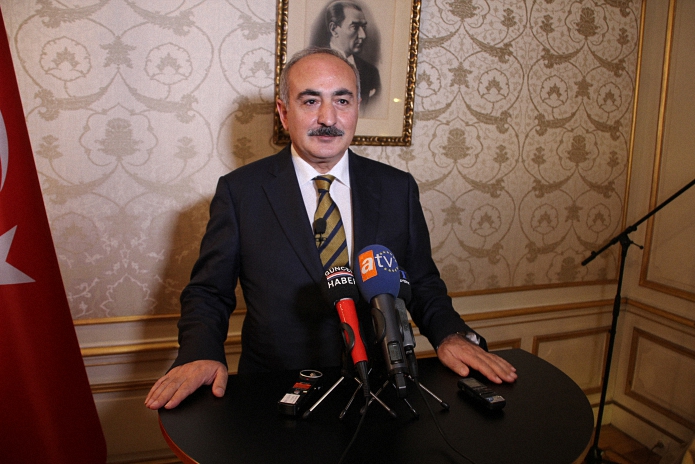Levent Kenez/Stockholm
Documents obtained by Nordic Monitor show that the Turkish Embassy in the Netherlands profiled Turkish citizens who are opponents of Turkish President Recep Tayyip Erdoğan and sent their private information to Ankara. The Ministry of Foreign Affairs then shared this information with judicial authorities, resulting in trumped-up terrorism investigations into these people without any concrete evidence.
According to a December 18, 2018 decision by prosecutor Adem Akıncı, the Ankara Chief Public Prosecutor’s Office launched a separate investigation (file no. 2018/43629) into 10 Turkish nationals who were listed in espionage files.
Judicial documents expose how the Turkish Embassy in the Netherlands triggered criminal investigations in Turkey. (The names and addresses of the Turkish nationals have been redacted for security reasons.):
The profiling files were conveyed to the foreign ministry by the Turkish ambassadors in The Hague, Sadık Arslan (2013-2017) and Şaban Dişli (2017-present).

Ambassador Dişli is a former deputy from Erdoğan’s ruling party. He was previously involved in a corruption scandal in 2008 and was not nominated again for parliament. He resigned from the party in 2017 after his brother, Maj. Gen. Mehmet Dişli, was accused of playing a key role in an abortive coup in 2016. Erdoğan’s surprise appointment of Dişli as ambassador sparked harsh criticism from the opposition because the family members of targets of a witch hunt that followed the coup were illegally imprisoned, but Maj. Gen. Dişli’s brother was in fact rewarded and received an ambassadorship. As a side note, relatives of Erdoğan and former Prime Minister Binali Yıldırım have a significant amount of investment in the Netherlands. By appointing a family friend and former banker as ambassador, Erdoğan obviously prefers someone he knows and can trust to look after his interests there.

Critics of the Erdoğan government abroad, especially members of the Hizmet/Gülen movement, have been facing surveillance, harassment, death threats and abduction since President Erdoğan decided to scapegoat the group for his own legal troubles. They have often been denied consular services such as power of attorney and birth registry as well as having their passports revoked. Their assets in Turkey are seized and their family members at home risk criminal charges.
Educator and the founder of the Sapat school network in Kyrgyzstan Orhan İnandı, who was included in the profiling lists published by Nordic Monitor, went missing after leaving his house in Bishkek on May 31. On Monday Erdoğan, who previously denied knowing anything about him, announced his “capture” by Turkish intelligence.
As previously disclosed by Nordic Monitor, the foreign ministry sent lists of profiled Turkish nationals in two CDs to the Ankara Chief Public Prosecutor’s Office, the national police and Turkey’s intelligence agency MIT on February 19, 2018 via an official document for further administrative or legal action, the punishment of their relatives back in Turkey and the seizure of their assets.
Public prosecutor Akıncı, who received the foreign ministry document on February 23, 2018, forwarded the classified CDs including information on 4,386 Erdoğan critics to the organized crimes unit of the Ankara Police Department for further action. The police conveyed the results of its investigations to the public prosecutor.
Akıncı, who led the investigation into the assassination of Russian Ambassador Andrei Karlov in December 2016, was accused of suppressing the evidence that the killer had links to various jihadist groups including al-Qaeda and was radicalized by several pro-government imams, including two who worked for the government religious authority, the Diyanet. Nordic Monitor previously reported that several suspects told the court that Akıncı had forced them to testify during interrogation that the assassination was directed by the Gülen movement. They were later jailed after declining the prosecutor’s request to testify to that in court.












